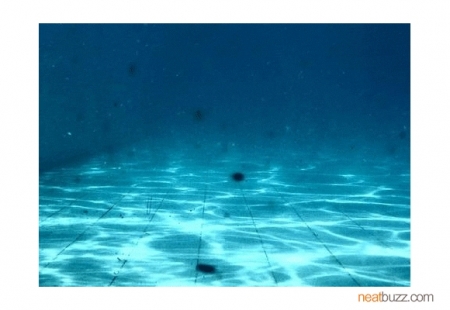|
|
|
Published On: August 16, 2014
By: Donald Moore, West Virginia
|
GENERAL CATEGORY
|
7 DISGUSTING FACTS ABOUT DIRTY PUBLIC SWIMMING POOLS
|

|
|
7 disgusting facts about dirty public swimming pools
|
Summer. Hand-in-hand with vacations and beaches and public pool outings. Whether you`re a committed swimmer or a family looking for some pool-time fun, you have the right to know: are pools clean?
While swimming offers an excellent way to get physical activity to stay healthy, it`s important to understand the risks posed by dirty public pools and water parks. Too often, most of us assume that pool operators stick to strict standards to keep pools clean. But there`s no national uniform procedure in place for maintaining pools.
Before you leap in, find out what may be lurking beneath the surface.
Summer. Hand-in-hand with vacations and beaches and public pool outings. Whether you`re a committed swimmer or a family looking for some pool-time fun, you have the right to know: are pools clean?
While swimming offers an excellent way to get physical activity to stay healthy, it`s important to understand the risks posed by dirty public pools and water parks. Too often, most of us assume that pool operators stick to strict standards to keep pools clean. But there`s no national uniform procedure in place for maintaining pools.
Before you leap in, find out what may be lurking beneath the surface.
Feces
According to the Centers for Disease Control (CDC), the average swimmer contributes at least 0.14 grams of fecal matter to pool water — usually within the first 15 minutes of entering.
And, a CDC report of routine pool inspections released in 2010 found that nearly one in eight pools posed serious violations that threatened public health, which resulted in those pools being closed immediately.
Bacteria - E. Coli
The CDC released a new study about what`s lurking in the pool water. And it doesn`t look so good. Water sampled from 161 pools in the Atlanta area showed signs of E. Coli — the bacteria most commonly associated with fecal matter.
And it can`t completely be pinned on the kids. While it`s true that improperly potty-trained children can bring fecal matter into the water, adults share the blame.
When you forgo rinsing with soap and water before entering the pool, you introduce fecal matter into the water. A simple shower with soap before entering the water can significantly cut the risk of contamination.
And for the little ones, be sure to change diapers in the bathroom or designated diaper-changing area — not poolside, which increases the risk of germs getting into the water.
RWIs
Recreational water illnesses (RWIs) are caused by germs that are spread by swallowing contaminated water present in swimming pools, hot tubs, water parks, lakes, and oceans.
According to the CDC, there has been an increase in the number of RWI outbreaks in the past two decades.
The most common RWI is diarrhea. Other RWI infections include:
gastrointestinal
skin
ear
respiratory
eye
neurologic
wound
most common is diarrhea (caused by germs like Crypto and E. coli)
Chlorine and other disinfectants don`t kill germs instantly. Also, the mixing of chlorine with pee and sweat uses up the chlorine in the pool, which would otherwise kill germs. That`s why keeping chlorine at recommended levels is essential to maintain a healthy pool.
Cryptosporidium ("Crypto")
Cryptosporidium — or Crypto, for short — is a parasite that causes the diarrheal disease cryptosporidiosis. Protected by an outer shell that allows the parasite to survive for up to 10 days even in chlorine-treated water, this means that even well-maintained pools can spread Crypto among swimmers.
Crypto has become the leading cause of swimming pool-related outbreaks of diarrheal illness. From 2004 to 2008, according to the CDC, reported Crypto cases increased by over 200 percent.
Fortunately, by following good hygiene at water parks and public pools, you can help prevent Crypto.
Giardia
Giardia is a microscopic parasite that causes diarrhea. The parasite is found on surfaces or in contaminated soil, food, or water. Like Crypto, Giardia is protected by an outer shell that allows it to survive outside the body for long periods of time, and which also makes it tolerant of chlorine.
A person can get infected by swallowing Giardia cysts (hard shells containing Giardia) found in contaminated food or water. Cysts are immediately infectious once they leave the host through feces.
While the parasite can be spread in different ways, water (drinking water and recreational water) is the most common method of transmission. It can be passed from person to person, or from animal to person.
If you swallow contaminated water, such as in a public swimming pool, you are at risk for getting a Giardia infection, and Giardia infection rates tend to rise in the summer months.
Pee in the Pool
One in five Americans admit to peeing in the pool, according to a survey conducted by the Water Quality and Health Council.
But the faux pas goes beyond the average, recreational pool-goer. Nearly 100 percent of elite competitive swimmers are reported to pee in the pool — regularly.
Disgusting, yes. And also unhealthy. Urine interferes with the chemically-treated pool water and essentially eats up the chlorine, which is intended to kill harmful germs. If too many people pee in the pool or dive in while sweaty, that could mean less available chlorine to wipe out germs.
Chlorine By-product
When we enter the water, we add our sweat, urine, invisible fecal matter, lotion, and sunscreen to the soupy, invisible brew of chemicals and bacteria present in the pool water.
Enter chlorine, which is intended to kill bacteria and germs in the water. But if you notice a strong odor of chlorine at a public pool, it`s actually not a good thing. It indicates a maintenance problem. A well-chlorinated pool should in fact have little odor.
What are the proper free chlorine levels?
Pools: free chlorine level (1-3 mg/L or parts per million [ppm]) and pH (7.2-7.8) maximize germ-killing power
Hot tubs/spas: disinfectant level (chlorine [2-4 parts per million or ppm] or bromine [4-6 ppm] and pH [7.2-7.8]) maximize germ-killing power
The problem is that all of the bodily fluids we bring into the pool react with existing organic matter and with the chlorine in the water. In one study, scientists examined how those reactions produce potentially toxic chlorine by-products, which have been linked to lung and skin irritation, allergies, asthma, and bladder and liver cancer.
|
|
|
|
|
